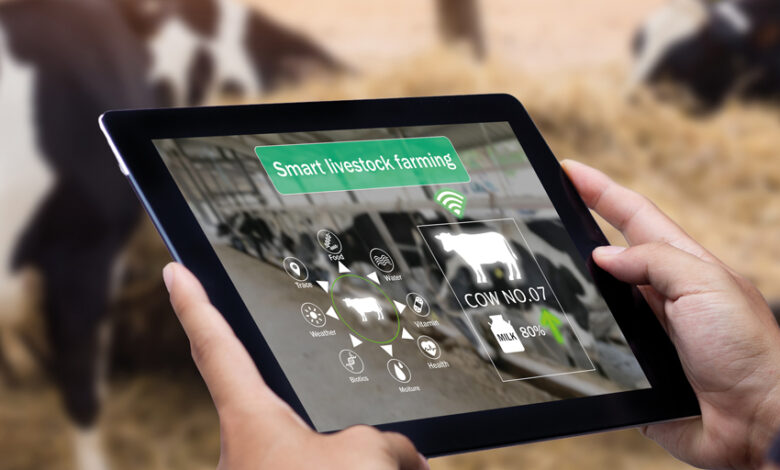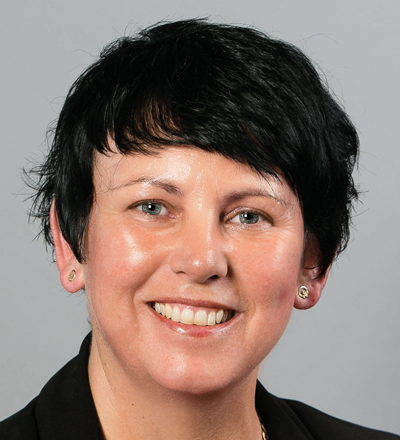Digital by default: New ways of working in DAFM

Outlining the importance of the Harnessing Digital strategy, Louise McKeever, Chief Information Officer at the Department of Agriculture, Food and the Marine (DAFM), explains how the enhanced use of technology was a much-welcomed development during the Covid-19 pandemic.
 The DAFM is currently undergoing a digital transformation and enablement journey to digitally enable the DAFM through use of technology. This transformation journey will enable efficiencies in the agri-food sector, which employs around 7 per cent of workers in the State.
The DAFM is currently undergoing a digital transformation and enablement journey to digitally enable the DAFM through use of technology. This transformation journey will enable efficiencies in the agri-food sector, which employs around 7 per cent of workers in the State.
“We want to leverage our data. To drive this agenda we have built a corporate wide data warehouse and BI platform and we continue to leverage data from both internal and external sources,” explains McKeever, illustrating the digital journey which is being undertaken by her department.
“The pandemic has changed many aspects of our lives and many people are now working remotely, engaging online, and have higher expectations for digital public services. As we emerge from the pandemic, the public service wants to capture and build upon the best elements from this experience.”
Emphasising the importance of optimising the role of technology in the scope of the DAFM, McKeever contextualises the significance of agriculture as a major backbone for the Irish economy. “In 2021, the sector employed over 170,000 people. This represents over 7 per cent of the entire workforce across over 135,000 farms, 2,000 fishing vessels and agriculture sites, and some 2,000 food production and beverage enterprises,” she states.
“The sector is responsible for over 4.5 million hectares of agricultural land and 770,000 hectares of forestry and it produces close to 10 per cent of Ireland’s exports each year. In 2021, Ireland’s food and drink was exported to over 180 countries worldwide, with exports valued at a record over €15.4 billion, and that is a 50 per cent increase from 2012 when it was €10.2 billion.”
At the same time, the agriculture sector will need to undergo major reform given the sectoral emissions ceilings established by government.
Progress made and more to come
Digital transformation has helped DAFM move away from an analogue, paper-based system, towards one which ensures that there are online options for processes citizens utilise.
“We have several mobile apps such as the Calf Reg, Avian Check, and badger apps. The avian app was pivotal in relation to tracking the spread of disease. Throughout the ongoing concerns over the spread of avian flu, citizens have been able to upload photos of wildlife that they encountered that were affected by the outbreak.
“We have marine GIS technology in place and we recently launched a number of modern applications such as the exotic disease management system (EDMS) and the national veterinary prescribe system (NVPS). Our animal health control system is also now available online for external users.”
“We are currently upgrading our strategic platform and that is the enablement component of the modernisation programme, a programme to upgrade our system and services. That upgrade programme which was undertaken from the second half of 2022 and that is a critical component for our digital enablement journey.” Louise McKeever, Chief Information Officer at the Department of Agriculture, Food and the Marine (DAFM)
In order to make further progress, McKeever stresses the need for agility. “Agility is and must be at the heart of everything we do,” she says.
“This ensures that we deliver. DevOps is our delivery approach that supports our agile development methodology, and it improves collaboration between our development and operations teams with security at the heart of everything we do.”
Additionally, the DAFM CIO stresses the need to “continue to leverage data from both internal and external sources”.
Digital by default
Reiterating that “digital by default” is a top priority in order to maximise efficiency and ensure that the department continues to support enhanced prosperity for the agri-food sector, McKeever outlines the progress which has been made by the introduction of various platforms to the operational business of the department.
“Our existing architecture has served the department well over the last two decades and continues to be the primary source for processing schemes and payments in DAFM. The Red Hat OpenShift container platform architecture has been under review, and we are assessing its capability to ensure it can be our strategic platform of choice.”
To support digital enablement, DAFM utilised the OpenShift platform, which, McKeever explains, was a contributing factor to receiving an innovation award in 2021.
“We are currently upgrading our strategic platform and that is the enablement component of the modernisation programme, a programme to upgrade our system and services. That upgrade programme which was undertaken from the second half of 2022 and that is a critical component for our digital enablement journey,” she concludes.





